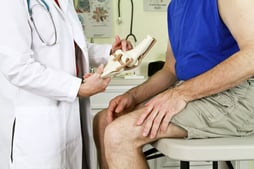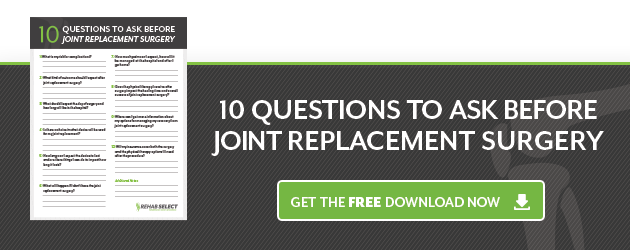 Joint replacement surgery is a very common procedure these days, with nearly a million performed every year. However, while these surgeries can do great things for your mobility, daily pain levels and quality-of-life, it is important to remember that common doesn't necessarily mean routine and easy. Joint replacement surgery is a serious procedure, and recovery can be intense. So what do you need to know and do to ensure you're well prepared for the experience?
Joint replacement surgery is a very common procedure these days, with nearly a million performed every year. However, while these surgeries can do great things for your mobility, daily pain levels and quality-of-life, it is important to remember that common doesn't necessarily mean routine and easy. Joint replacement surgery is a serious procedure, and recovery can be intense. So what do you need to know and do to ensure you're well prepared for the experience?
Preparing Your Body
Going into joint replacement surgery in the best possible physical shape has been shown to make surgery easier on your body and recovery much faster and more complete. Here's what you can do in the weeks before your procedure to give yourself an extra edge during surgery and recovery:
- Get physical therapy – Targeted exercise to strengthen the muscles that will control and stabilize your new joint can make recovery a lot easier, as can increasing your upper body strength to prepare for the time you'll likely spend getting around on crutches or with a walker right after surgery. General exercise can help ensure that your body is prepared to handle the stress of surgery, reducing your risk of complications during and after your procedure.
- Eat well – A balanced, nutrient-dense diet can help ensure that your body has all the nutrients it will need to come through surgery well, resist infection afterwards, and heal quickly and completely during your recovery period.
- Quit smoking – If you smoke, quit before your procedure, or at least cut down, since smoking affects blood circulation and delays healing.
Preparing Your Mind
Stress and anxiety can have a big impact on your physical health, impairing immune system function and slowing healing. Getting mentally prepared for your procedure can help you keep stress and anxiety under control before, during and after your surgery. Things that you can do include:
- Learn about your procedure – Knowing what to expect as you go through surgery and recovery can ease your mind about the process, so ask lots of questions. Ask what is involved with hospital admittance, what will be done during surgery, how long your procedure will take, what type of anesthesia will be used, and how you can expect to feel right after surgery and during those first few weeks of recovery.
- Get plenty of rest and exercise – Both help reduce your stress levels – and no matter how comfortable you become with the details of your procedure, anticipating an upcoming surgery will make you a bit nervous.
Prepare Ahead For Your Recovery
Having all your ducks in a row when you're headed home makes the recovery process easier. Things you need to see include:
- Preparing your home – This may mean clearing a path to accommodate crutches or a walker, removing trip hazards, gathering often-used items in readily accessible spots, installing a raised toilet seat and shower chair, setting up a ground-floor bedroom and stocking up on food and other necessities.
- Arranging for help – That will likely include transportation home from the hospital and to follow-up and physical therapy appointments and someone to stay with you after surgery to help with your care, household tasks, errands etc.
Of course, you'll have individual needs that aren't covered here, but the main point is this: Thinking things through and preparing as much as you can in advance of joint replacement surgery can make life in the days and weeks afterwards a lot easier. Less daily hassle means more time to focus on the important things – healing, recovering and getting back to your life.





